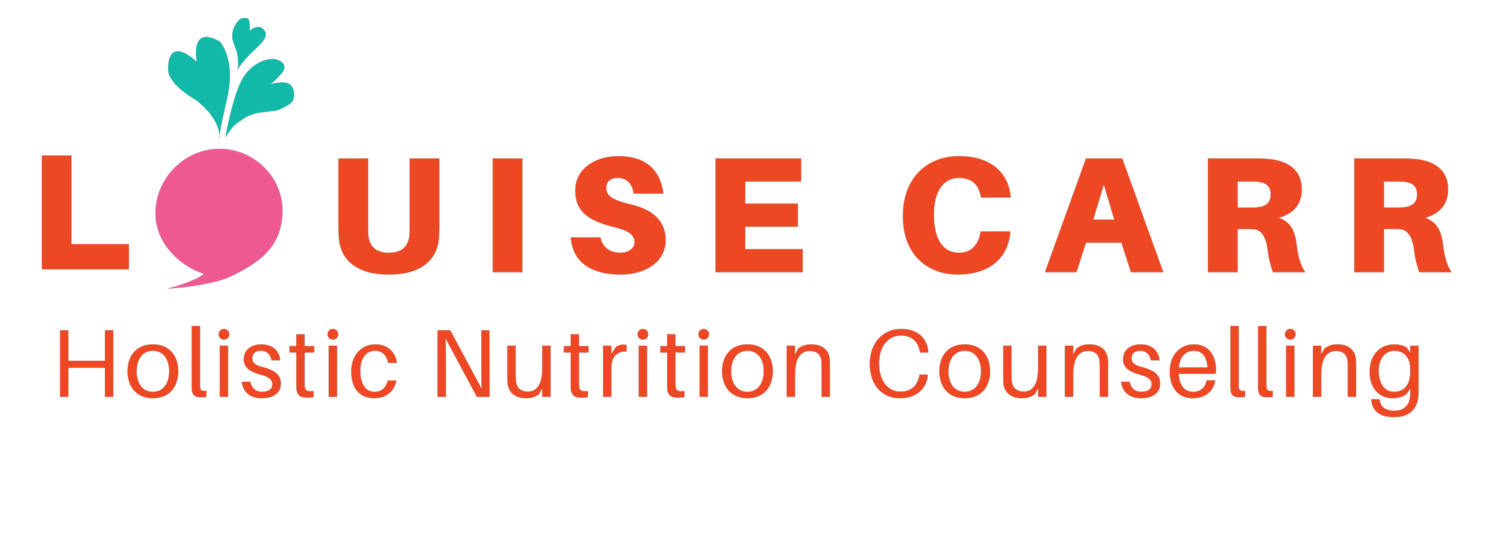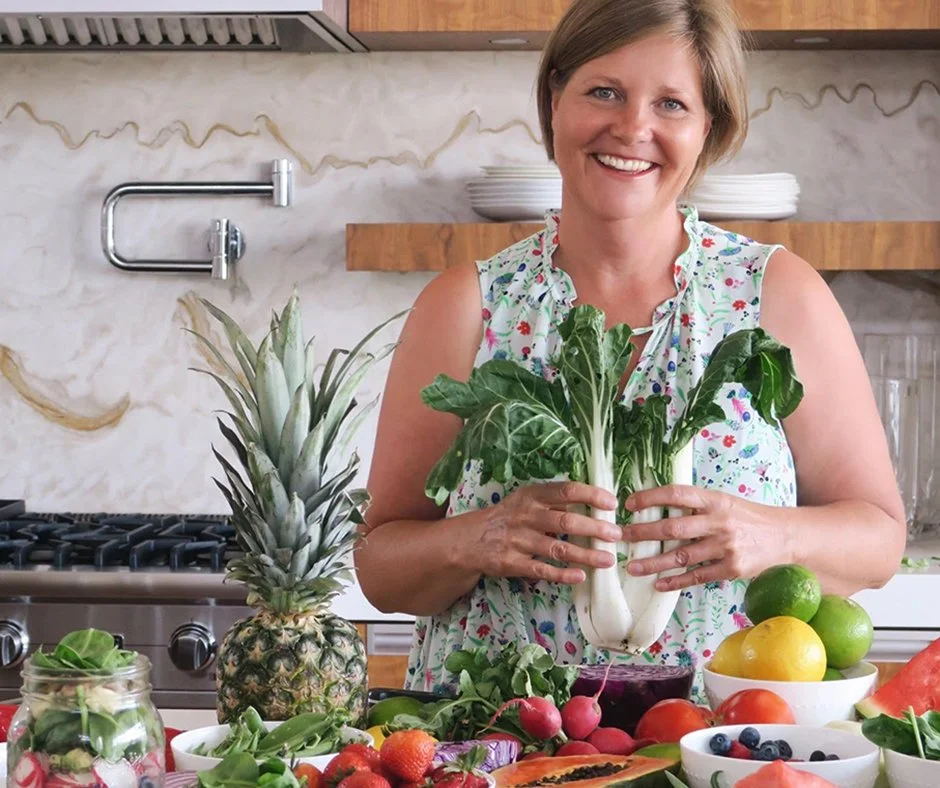When we examine the natural hormonal change of peri-menopause through the lens of HRT as a solution to avoid our symptoms, we take on the patriarchal view of the conventional medical profession; An attitude of lift up the hood and top up the oil, this old girl is running dry.
In reality, as women, we are living in bodies with monthly cycles guided by the moon and our circadian rhythms; that are reset daily by the sun and our sleep schedule. Our body wide, menopausal hormonal change is natural and, like whales, we have bodies designed to compensate when our ovaries move into a state of rest.
Research tells us that the majority of us will enter our 40’s at risk of nutritional deficiency in iodine, calcium, magnesium, potassium, vitamin D, essential omega 3 fatty acids, vitamin K, vitamin E, folate, vitamin B6, protein, fibre and iron.
Over a lifetime we can eat ourselves into these deficiencies simply because the food we consume from our food system today contains less nutrition than it did in the past. Many of us are eating a nutrient depleted modern diet full of processed and fake foods. Some of us are nutritionally depleted over decades from growing and birthing our babies and think the exhaustion and weight gain are normal.
Besides easily measured nutritional markers, research tells us our experience of the severity of menopausal symptoms is exacerbated by things as nefarious as our mindset (Am I joyful? Do I feel unfulfilled or overwhelmed?), the levels of chemical pollution in the ecosystem we inhabit that is our environment and even how empowered we feel as women at midlife; in a system that pays women less, gives women more of the household tasks and wants control over womens clothes/hair/wombs.
We will feel our symptoms more severely if:
We restrict our food intake and don’t eat a healthy and balanced diet
If we over exercise and under rest,
If our sleep is disrupted
If we smoke
If our mother experienced challenges and we believe our experience will be the same
…And in societies where aging citizens are not valued but seen as a burden.
This variation in womens experiences of hormonal changes leading to menopause gives us an opportunity to influence our personal experience of peri-menopause. We are not the victims of a blanket experience of natural hormonal change. In fact we have the power in our own hands to improve our sleep and diet, adjust our exercise regime and increase our own personal self-worth to change our own personal story.
We can use this chapter in life to give up smoking, to learn to put boundaries around people, places and practices that drain us and can learn the skills to deeply nourish our bodies and build health to manifest a vision of vibrant health that we dream of and imagine for ourselves after menopause.
We have the opportunity to listen in to our bodies, learn, grow and change during menopause and we deserve to be treated as full and complete humans as we go through this process.
When we bypass our full experience of hormonal change, we miss the opportunity to:
1. Learn how to nourish our bodies deeply to support our brain and heart health to reduce the risk of cardiovascular disease, diabetes and dementia in the future.
2. Deal with our mindset and stress levels to reduce cortisol and improve adrenal health to allow our juicy hormones to bounce back so we can find our orgasm and libido.
3. Work on our sleep hygiene to boost energy in the short term and lay down healthy habits for our brain as we move into the next chapter of ageing.
4. Learn the nutritional knowledge to support our longevity, vaginal health, tissue health, microbiome and mood at midlife and beyond.
5. Tune back into our pleasure, desires and ambitions after raising a family and carrying the emotional load in a patriarchy or having dedicated ourselves our career.
6. Examine our most important relationships to ensure they are healthy and working to support us and make changes if they increase symptoms of menopause because they are draining and tearing us down.
7. Learn boundaries after a lifetime of over-giving and over-committing so we can move into the next chapter feeling happier, more spacious and with cortisol, our stress hormone significantly lowered. (Did you know that healthy boundaries are linked to reduced joint pain and reduced incidence of excessive bleeding in peri-menopause?)
8. Unpack what we learned at our childhood table and from a lifetime of brainwashing by the diet industry, so that we can decide what we want aging to look like for us and can better nourish our aging bodies without guilt or dysfunction. Midlife is a great time to unlearn diet and restriction.
9. Assess our exercise practice to find one that works to build strength, protect our continence and vaginal health, to reduce stress in our bodies and to maintain flexibility and range of motion whilst easing aches and pains. Peri-menopause is your reminder to start the work to get to a place where you have the strength and flexibility to get easily in and out of a chair on one leg!
10. Get a chiropractic or osteopathic assessment, visit a podiatrist and make an appointment with a pelvic health specialist. When symptoms pf peri-menopause start, take it as motivation to ask for help and to address ongoing aches, pains and irregularities. We deserve to age in comfort and peri-menopause is the reminder to prioritize yourself.
11. Book an appointment with a pelvic floor PT and make friends with your pelvic floor, vagina, vulva and labia! Love on your body and prioritize meaningful self-care at midlife. She is waiting for you!
12. Find a mindset practice, therapy or somatic support that helps us to deal with the small t trauma we have experienced in childbirth and in our relationships; from misogyny and feeling unsafe in society or when unheard or bypassed by medical professionals. We get to put our big girl pants on and calm our nervous systems as menopause reminds us to take great care of our mental health.
13. Notice and shut down the mean voice in our heads that checks on what we eat and doesn’t like what it sees in the mirror. Our bodies hear everything our minds say and midlife is the chapter to notice how we talk to ourselves, free ourselves from self-hate and work on building self-love and healing for ourselves. Separating from this mean voice dramatically reduces stress and shame and is supportive of reduced menopausal symptoms.
14. Rest, learn to say NO and lean in to to asking for help. Women who inhabit a supportive environment and feel seen and heard pass more easily through hormonal change and into the calm seas of the next chapter.
As women, our hormones impact every aspect of our health. Estrogen receptors are found throughout our bodies and excess cortisol, our stress hormone can crash our juicy hormones to zero, creating a whirlwind of uncomfortable symptoms. We have the ability to tune in, to listen to our bodies and respond with rest, better boundaries and nurturing food and nutrition to massively change our personal experience of menopause.
We have a phenomenal number of levers to pull and tools to use when it comes to taking empowered steps around our personal health at midlife. You know your body best and you know what you need.
Pick one positive step you can make for your health, research and make changes; then pick the next easiest step. Incrementally, the changes you make to your diet and lifestyle will radically change your overall health. For example: One green smoothie on a (fairly consistent) daily basis provides fibre to manage midlife hormones and reduce symptoms. Feed a healthy microbiome to increase immunity and boost mood. Offers the body easily absorbed calcium and magnesium to build great bone health and antioxidants and fibres to help prevent breast and colon cancer.
Replacing hormones reduces symptoms but nutrition and lifestyle changes reduce symptoms and build health and as you move through this process of making baby steps to better health, your confidence, self-trust and voice of self-advocacy will grow. This is the gift offered by listening to the body in a natural menopause.
As the conversation about menopause and midlife womens health grows, it is important that we advocate for our full experience of empowerment through the process rather than being satisfied with the ‘top her up and keep her running’ attitude of the patriarchy.
Let me be clear: This does not mean we should not or cannot choose HRT as part of our tool kit but as the mothers of the future generation and because we shoulder the world of unseen and unpaid emotional and caring work for society; we deserve to be treated as full and complete humans in our journey to menopause as opposed to machines society needs to keep running.


